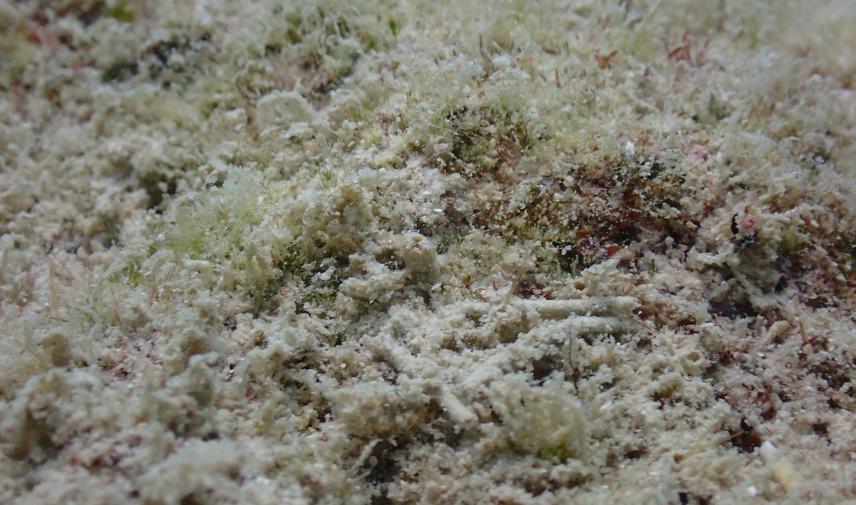Chaitanya Arjunwadkar
On coral reefs globally, algal turfs are often the most abundant benthic component. They mediate key ecological processes including coral settlement, primary productivity, and herbivory. However, algal turfs have the propensity to trap and retain sediments, which in recent years have become one of the most pervasive stressors on nearshore coral reefs. Algal turfs may trap nearly 90% of terrestrially discharged sediments, resulting in the formation of sediment-laden algal turfs (SLATs).
SLATs represent a chronic stressor as they can 1) inhibit the settlement of coral larvae, 2) affect the fitness of corals by smothering and limiting access to light, and 3) reduce herbivory by altering fish feeding behaviour and availability of nutritional resources. Therefore, SLATs have the ability to affect important processes that coral reef functioning is centred on.

Sediment-laden algal turfs (SLATs). © Chaitanya Arjunwadkar.
The effects of SLATs can be especially pronounced on tropical island coral reefs. The Andaman Islands have the most diverse reefs in India, representing ~80% of global coral diversity and provide means of subsistence to thousands of people. In recent years, however, these reefs have been subjected to unprecedented coastal development that has mobilized large sediment loads, which are deposited on nearshore coral reefs. These sediments could get trapped in algal turfs and disrupt coral reef ecosystem functioning.
While the role of SLATs on coral reefs has been studied across other coral reef systems, this knowledge is virtually absent from the Andaman Islands. Understanding how the Andaman coral reefs function in the face of disturbances, both local and global, and implementing site-specific, relevant, and contemporary conservation strategies to arrest further degradation of these reefs is critical. Applying process-based assessments to detect signs of disturbance and managing its drivers are vital steps towards protecting this ecologically and economically important system.
The aim of this project is to understand how the progressive rise in algal turf-bound sediments impacts coral reef communities and key ecosystem processes in the Andamans with the goal to develop site-specific conservation strategies and process-based monitoring protocols.
The project will specifically,
1. examine the distribution of algal turf communities and the sediments trapped within
2. examine the effect of various algal turf and sediment traits on a) benthic composition and b) herbivory by nominally herbivorous fishes
3. identify vulnerable reef sites, i.e., sites most prone to terrestrial sediment-driven degradation
4. develop protocols for processed-based assessments of coral reefs that are easily transferable, require minimum skills and training, and are low-cost
Header: Algal turfs devoid of sediments. © Chaitanya Arjunwadkar.